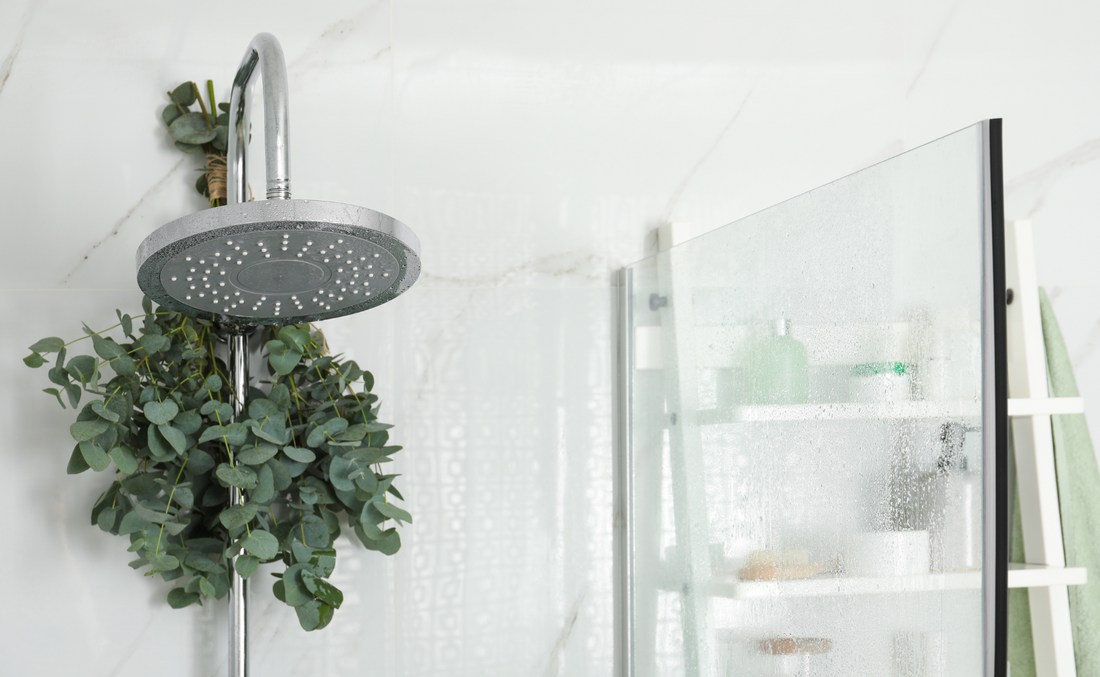
Can You Wear Contact Lenses in the Shower? Here’s Why That’s a Hard No
Picture this: you’ve got your contacts in, coffee’s brewing, and you’re taking a shower before your brain catches up. It happens. But here’s the thing: if you’re wearing contact lenses in the shower—even occasionally—you could be putting your vision at serious risk.
At Blue Planet Optics, we care about more than just helping you see clearly. We’re here to support long-term eye health. So let’s tackle a common question: Can you wear contact lenses in the shower?
Why Showering with Contacts Is Riskier Than It Sounds
You probably wouldn’t rinse your contacts in tap water, but most people don’t think twice about wearing them while showering. After all, what harm can a little splash do? The answer is surprisingly quite a bit.
The problem is that tap water isn’t sterile. It might be clean enough to drink, but that doesn't mean it’s safe for your eyes, especially when you're wearing contact lenses.
Similarly, water from your shower, bath, hot tub, or swimming pool can contain a microscopic parasite called Acanthamoeba. That might sound harmless enough, but unfortunately, this bug is anything but.
When Acanthamoeba becomes trapped between your lens and your eye, it can cause a rare but extremely painful infection known as Acanthamoeba keratitis.
Acanthamoeba keratitis can lead to:
Redness and irritation
Blurred vision
Sensitivity to light
Permanent vision loss in serious cases
Treatment is difficult and often involves months of medication. In the worst cases, a corneal transplant may be required.
You may have heard of Acanthamoeba infections before, especially from people who swim in lakes; however, it is essential to remember that they can also be contracted from something as routine as showering in your own bathroom.
What Happens When Water Meets Your Contact Lenses?
Beyond the infection risk, water can also mess with the shape and structure of your lenses.
Here’s what water does:
Causes lenses to swell or warp, making them uncomfortable or unsafe to wear.
Breaks the natural seal between your lens and your cornea, which can let bacteria sneak in.
Traps microbes behind the lens, and that can give said microbes access to your eye’s surface.
Your lenses are designed to sit in a sterile environment, like your eyes, but under the care of a proper solution. If you add water to the mix, all bets are off.
What To Do Instead
It’s not always easy to remember every tiny detail of your morning routine, especially when you’re rushing, but if you wear contacts regularly, building safe habits is important to maintaining long-term eye health.
Here are some tips:
1. Remove Your Contacts Before You Shower
This one’s the simplest and most effective. All you have to do is take your lenses out, shower, and pop them back in after if needed (with clean, dry hands, of course).
2. Consider Daily Disposables
If you’re someone who occasionally gets caught wearing contacts in water, switching to daily lenses can help minimize the risk. These are single-use, so any exposure to contaminants doesn't get carried over to the next day.
3. Use Prescription Glasses or Sunglasses
Honestly, your eyes deserve a break sometimes. Glasses are a great low-maintenance option, especially if you’re lounging, traveling, or just not feeling like wrestling with lenses.
4. Invest in Goggles for Swimming
Love to swim? No problem, as long as you make sure to use airtight swim goggles if you must wear lenses. Better yet, get prescription swim goggles for extra clarity and zero risk.
Contact Lens Hygiene Reminders
Let’s review a few quick hygiene tips for everyday lens wearers:
Always wash and dry your hands before handling lenses.
Never reuse solution—use fresh solution every time.
Don’t “top off” old solution in your case.
Replace your lens case every 1–3 months.
Never use water to rinse your lenses. Ever.
These tiny steps go a long way in preventing irritation and infections, and as a bonus, they help your contacts feel better for far longer.
Final Takeaway
Wearing contact lenses in the shower might seem like no big deal, but when you zoom in on the risks of eye infections, discomfort, and even vision loss, it’s clear it’s just not worth the risk.
To prevent eye issues, build a routine that protects your sight, and also take those lenses out and reach for your favorite frames.
Remember that if you’re ever unsure about what’s best for your eyes, don’t hesitate to ask your eye care professional and do further research. Your eyes will thank you.
At Blue Planet Optics, our number one priority is protecting your vision while giving back to people and the planet. Make sure to visit more of our blogs for more commonly asked questions about contact lens care!

2 comments
I would like to make an inquiry.
I would like to make an inquiry.